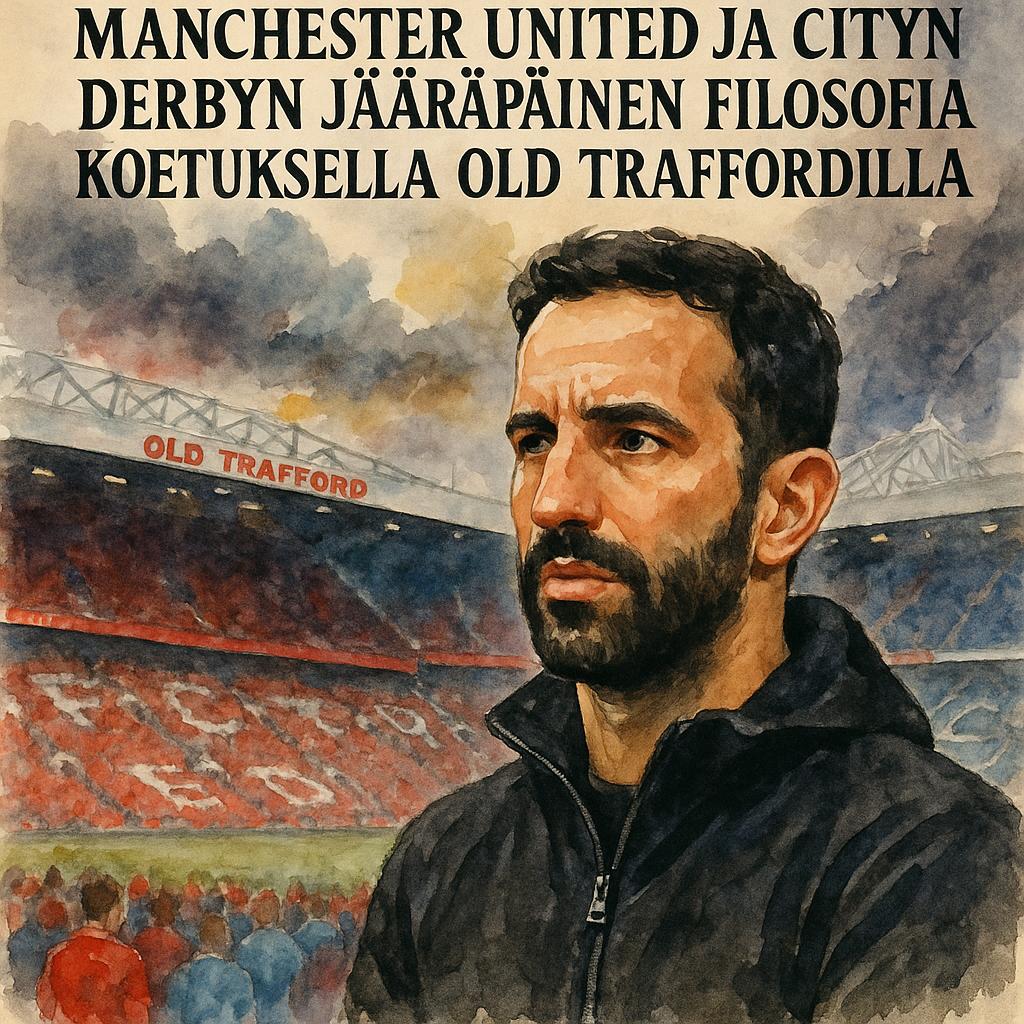Ruben Amorim Manchester United ja Cityn derbyn myrsky jääräpäinen filosofia koetuksella Old Traffordilla
Manchester on derby day is always painted in extremes — either a sea of City’s sky blue or United’s historic red. This latest clash ended with Manchester City walking away from Old Trafford as comfortable 3–0 winners, leaving United’s pride in shreds. For supporters, it wasn’t just another painful loss. It was a harsh reminder of the growing gulf between the two clubs that share the same city but live in different football realities.
At the heart of this storm stands Rúben Amorim, the Portuguese manager tasked with reviving United. He’s a coach who resists bending to the winds of public pressure, presenting himself less like a tactician and more like a philosopher determined to stay true to his vision. Even as critics mount, his message remains unwavering.
A Derby in Two Acts
The match itself offered little drama beyond City’s dominance. Erling Haaland, relentless as ever, scored twice, with Phil Foden adding another to silence Old Trafford. For United, it wasn’t a contest — more a reminder of how far behind they trail their biggest rivals.
In the aftermath, Amorim made his stance unforgettably clear: he will not abandon his philosophy. To him, compromising his belief system would be worse than simply losing a football match. That conviction may inspire respect in some, but for others, it raises doubts about whether he values philosophy over results.
Philosophy Meets Reality
Amorim’s chosen 3-4-3 isn’t just a tactical setup; it’s his guiding principles pressed onto the pitch. Yet belief without adaptation can quickly turn to fragility. With results faltering — only eight wins in 31 matches — fans and pundits are asking whether loyalty to one shape borders on arrogance.
- Rival clubs like City, Liverpool, and Arsenal accelerate forward.
- United’s record under Amorim lags far behind expectations.
- Questions of flexibility and pragmatism grow louder each week.
Pressed after the defeat, Amorim hinted at undisclosed issues — “things you don’t know about.” His words shrouded in mystery leave more speculation than clarity, fueling debates about whether it’s injury turmoil, locker room strife, or simply deflection.
The Fans, the History, the Burden
No setback stings quite like a derby defeat. United fans live with the weight of legends — Ferguson, Cantona, Giggs — echoing in the stands. Every stumble feels like an insult to their history. Amorim insists he suffers more than anyone, and watching him on the sideline makes the claim believable. His frustration, his intensity, his refusal to yield all paint the image of a man carrying an enormous burden.
The Blessing and Curse of Conviction
There’s an almost heroic allure to Amorim’s rigidity. Refusing to bow can create legacies, but football is a results business. History tends to celebrate managers who balance philosophy with adaptability — those who bend just enough without breaking.
- Stick rigidly to the plan and risk collapse.
- Adapt and compromise, but risk losing identity.
Amorim’s gamble is clear: stand tall or fall hard. His fate may define whether he becomes the architect of a revival or another footnote in United’s turbulent post-Ferguson era.
An Ongoing Drama
Watching Amorim, you get the sense of a character from Greek tragedy — unyielding, certain of his path, marching forward even as the chorus of doubt grows louder. Each match feels less like a football fixture and more like another act in a story that balances between triumph and downfall.
One thing is certain: Amorim won’t change. The lingering question is whether Manchester United can endure the cost long enough to find out if his belief carries them back into glory — or drags them deeper into disillusionment.
✍️ Written by: Helmi Karppinen — turning match nights into stories, one storm at a time.
